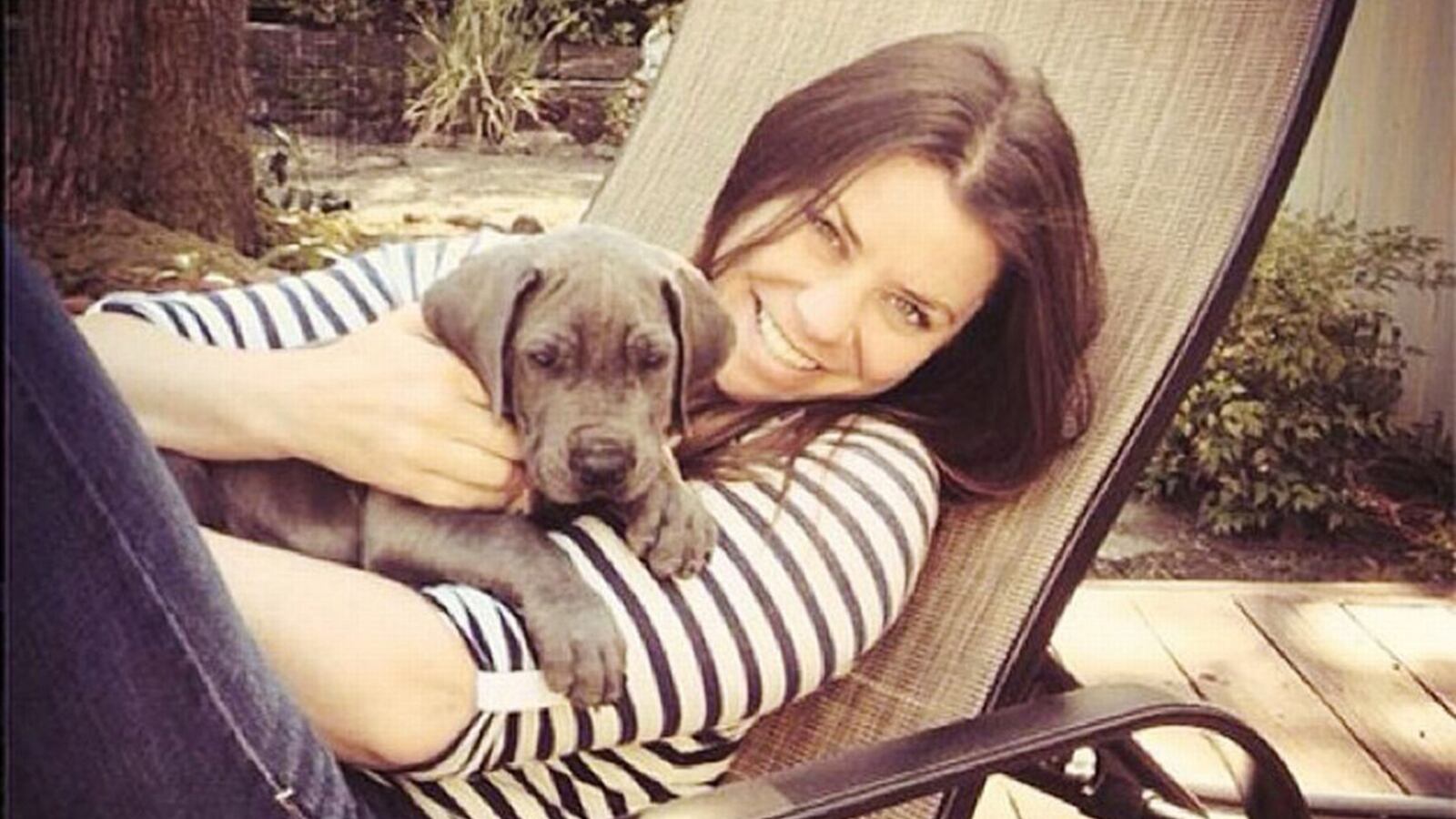There's a commercial for aspirin playing a lot these days that begins with a man sitting at a business meeting, who receives a note saying, "Your heart attack will happen at 7:00 pm tonight.” The voiceover corrects the note, saying that we don't get such dire warnings. But Brittany Maynard did.
Early this year, Brittany Maynard, a vibrant and active 29-year-old newlywed, began getting debilitating headaches. A trip to the doctor resulted in a diagnosis of Glioblastoma multiforme, an especially virulent cancer of the brain. At first, the prognosis was just a few years to live. A further doctor's visit and tests revealed that her cancer of the brain was proceeding very fast, had progressed to Stage 4, and that she only had months to live.
Accompanying this diagnosis was a description of what her particular death would be like. It would be an especially prolonged and painful death. This strong and rugged woman of the outdoors decided that she would take charge of her death like she has taken charge of her short life. She and her family have moved to Oregon, which is one of five states that provide the option of obtaining drugs that will end her life when she chooses, while she has the ability to choose. Brittany has decided that her husband and family will, Nov. 1, in her own bed, surround her that day.
Many people would call this suicide, pure and simple. But life is much more complex, and the human spirit much more creative, than such a judgment would suggest. Perhaps more than anything, what people fear most—aside from the pain of a terminal illness—is the loss of control. Call it pride and the desire for autonomy over one's life if you will, but to those who advocate for the right to end one's life, it is the right to "die with dignity.” That's what Brittany wants. I think she deserves that right. And I think it is a thoroughly moral choice.
Brittany Maynard is not mentally ill. She is not suffering from depression. No amount of therapy—whether psychological or physical—will change the fact that without intervention, she will die a horrible death. She seems to have worked through the "stages of dying" made famous by Dr. Elizabeth Kubler-Ross, and reached the final stage of accepting the fact of her imminent death.
Hers is not a "fight to the death," but rather an embrace of the days she has left. She has gone on trips with her family (photographs of her trip to Alaska show a vibrantly alive young woman), spent time with close friends, and prepares for the day (two days after her husband Dan's birthday) when she will settle into her bed, take her deadly prescription, and die peacefully, surrounded by her family. She shared her choice and her right to die with dignity in a recent YouTube video.
There is nothing innately redemptive about pain. Sometimes the endurance of pain can in fact be noble. We celebrate military heroes and selfless individuals who sacrifice their own lives for the good of others. But there is nothing innately good about allowing "nature" to take its course in a prolonged and painful journey to an inevitable death. It doesn't make you a better person because you endured the indignity and trauma of it. You don't get extra stars for it.
In my church's Baptismal Covenant, we promise to respect the dignity of every human being. That is all Brittany is asking—that we (society) respect her dignity and allow her to end her life before her dignity is stripped from her, little by little, until there is little left of it. She wants to die whole and in peace.
Not everyone has the resources to uproot themselves and move to a "right to die" state, as Brittany and her family have done. Only Oregon, New Mexico, Vermont, Montana and Washington have such protections in place. But there are people in every state who face medical death sentences. Most will choose simply to endure whatever comes, no matter how painful or debilitating, and that is their right. But shouldn't the right to end one's life also be provided for those who would choose it?
There are safeguards for ensuring that such a decision is not made lightly or inappropriately. No one should be given a lethal prescription of drugs when they are gripped by mental illness or in a temporary depression. They should not be given such a means of ending their lives without a medically-diagnosed terminal illness. Such an "assisted suicide" (a most unfortunate moniker for such a careful and thoughtful decision) should be made available only to those who meet certain and demanding criteria. But it should be available.
We could all learn from Brittany Maynard, if only we would. "Seize the day" and "Live life to the fullest" have become clichés for the simple reason that we all believe in their sentiments, but seldom do it. In her video, Brittany says she is going to spend the rest of her time doing the things that are really important to her and disregarding those things that have no real value. Shouldn't we all?
Brittany is using the time left to her to champion this right to "die with dignity.” She is working with an organization called Compassion and Choices, a non-profit that advocates for "Death with Dignity" laws in the other 45 states that don't have them. She is proactively using the days left to her the way she has lived out the rest of her life—with appreciation for the outdoors, love for her family and friends, and close attention to the things and people who mean the most to her.
Most of us don't receive a note letting us know that we will die at a certain time. But wouldn't it be wonderful if we could all live our lives with the intentionality that such a warning brings? On Nov. 1, when Brittany ends her short but productive life, I will be thanking God for her remarkable and courageous example. My faith tells me that she will be received into the loving arms of God who has loved her in this life and will continue to love her in the next one. Rest in peace, good and faithful servant.






